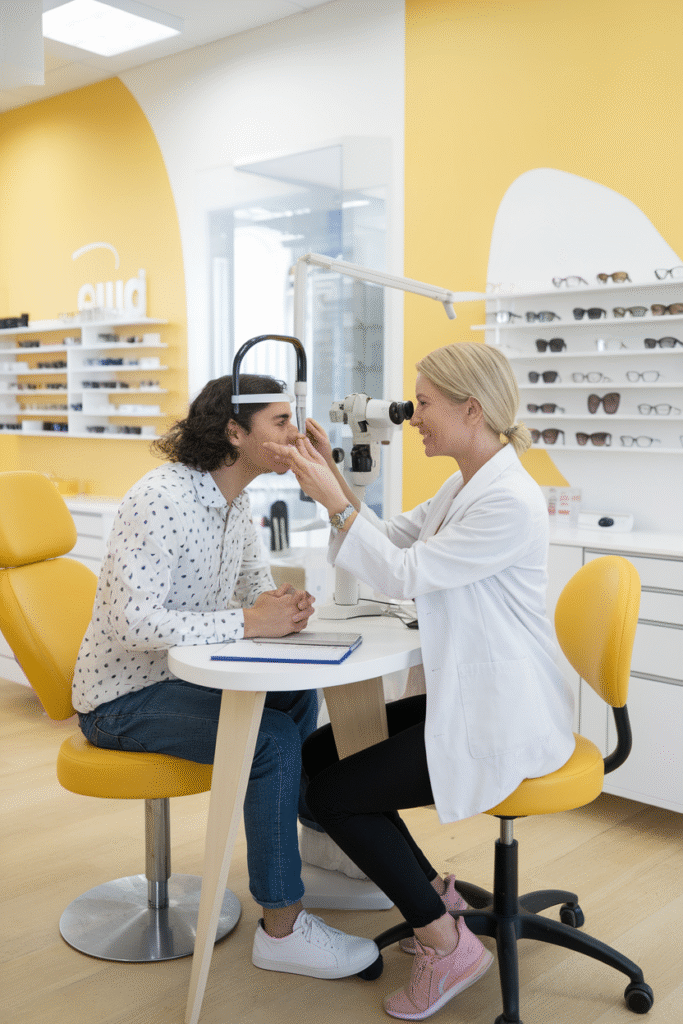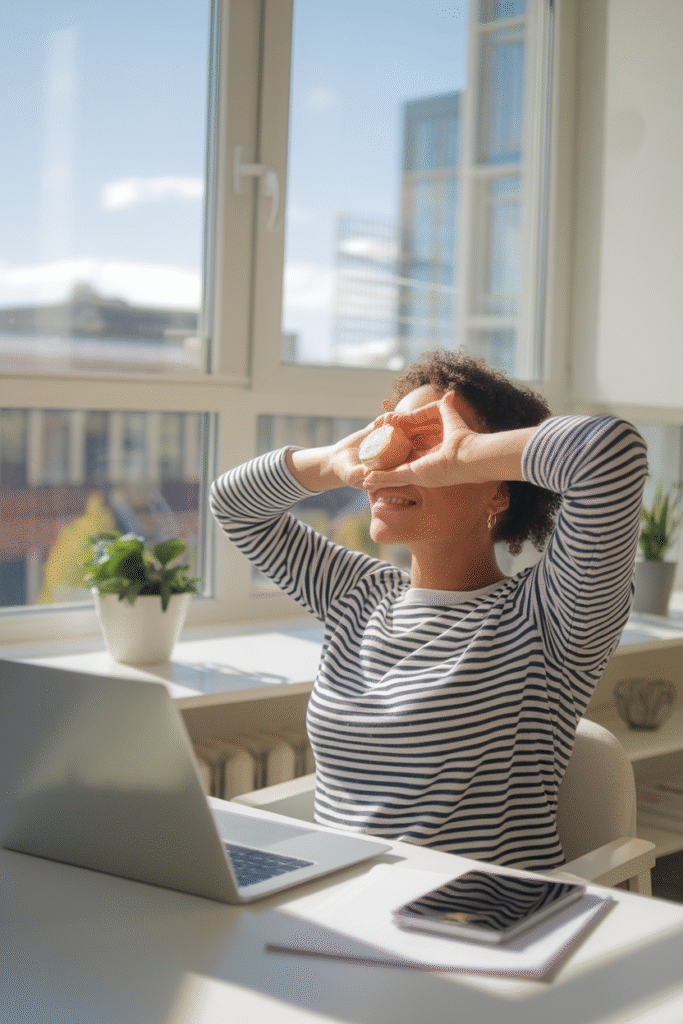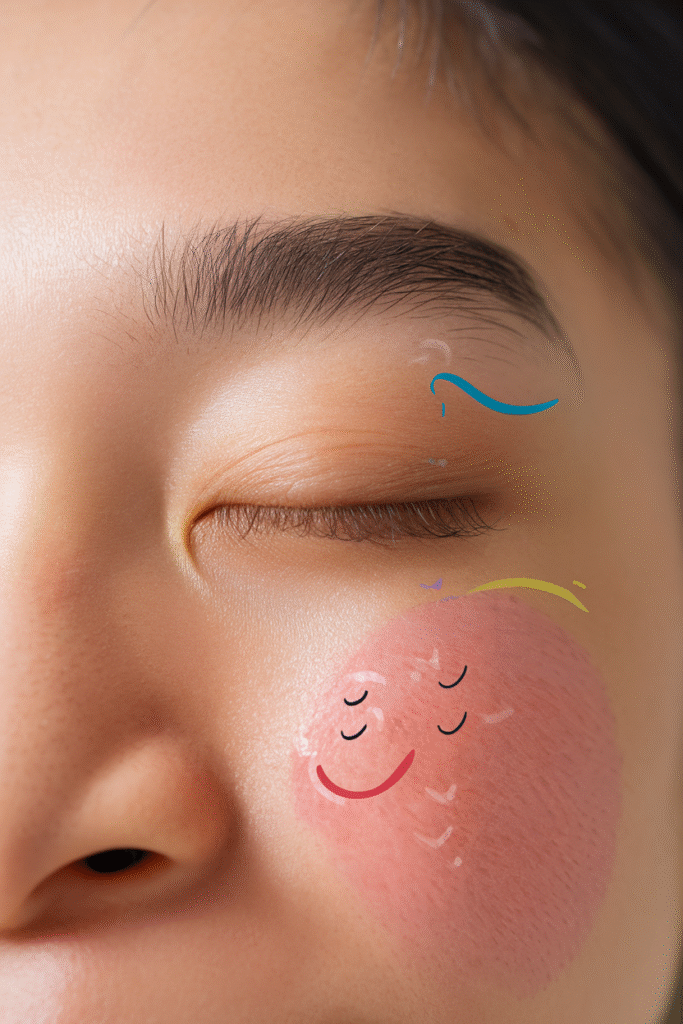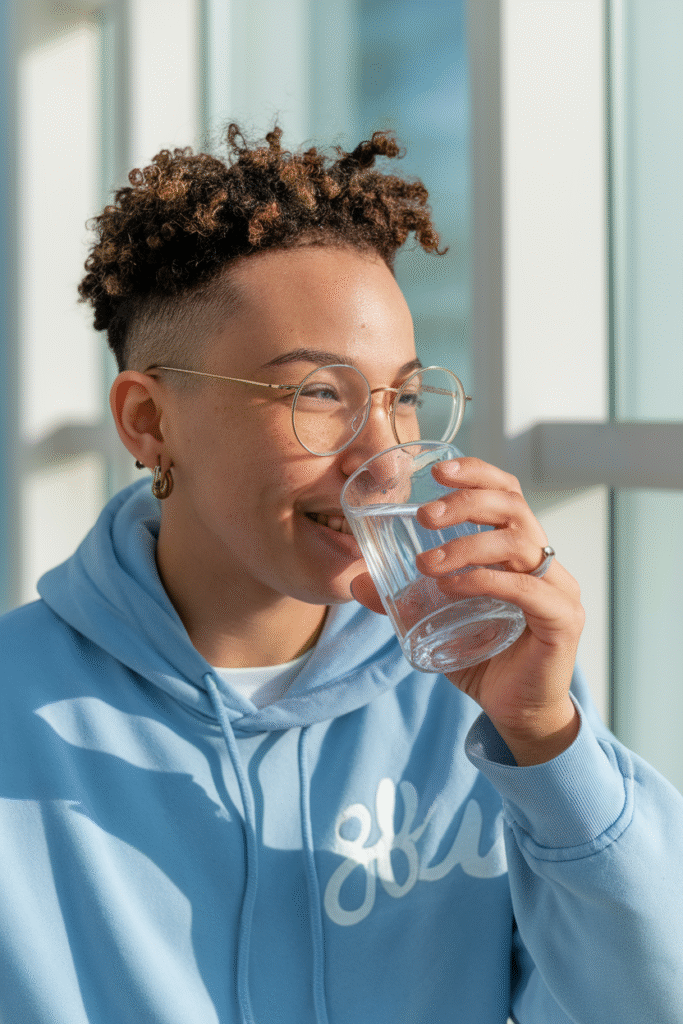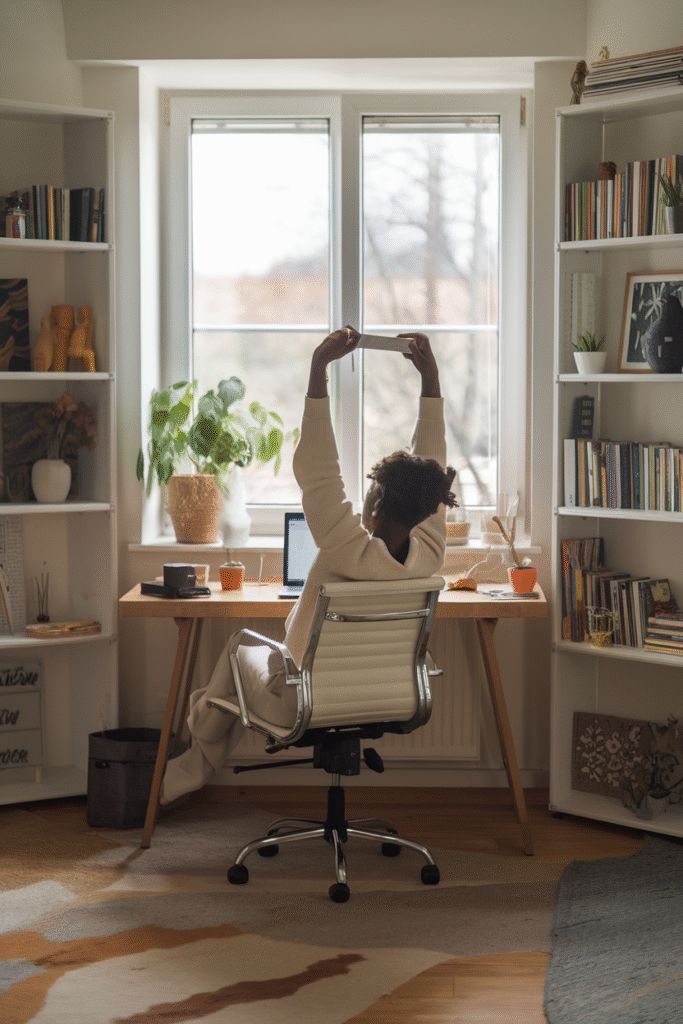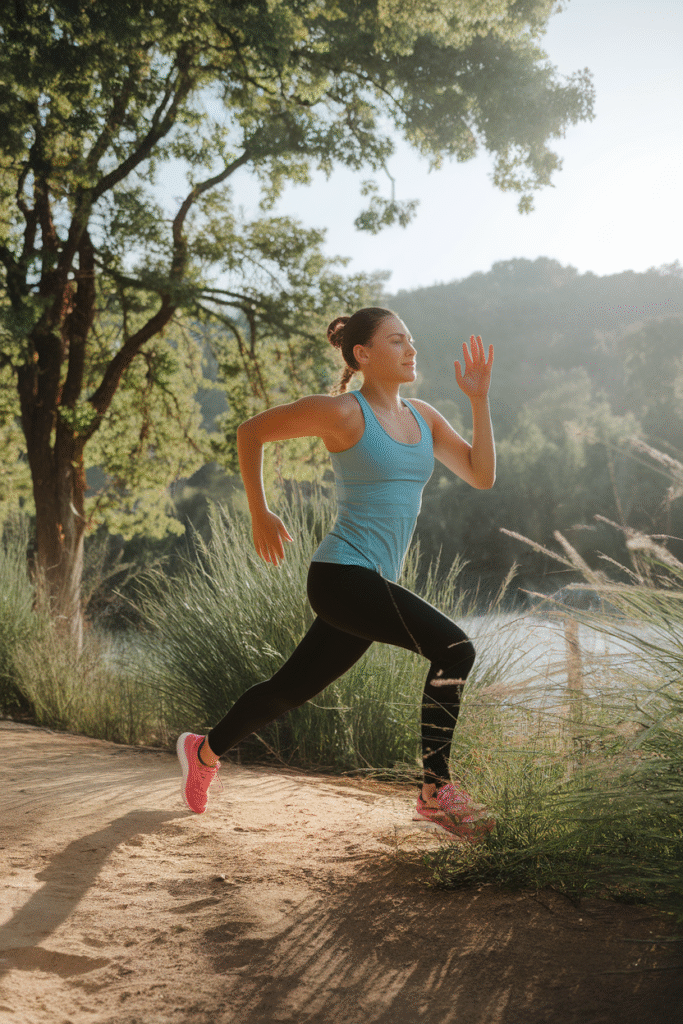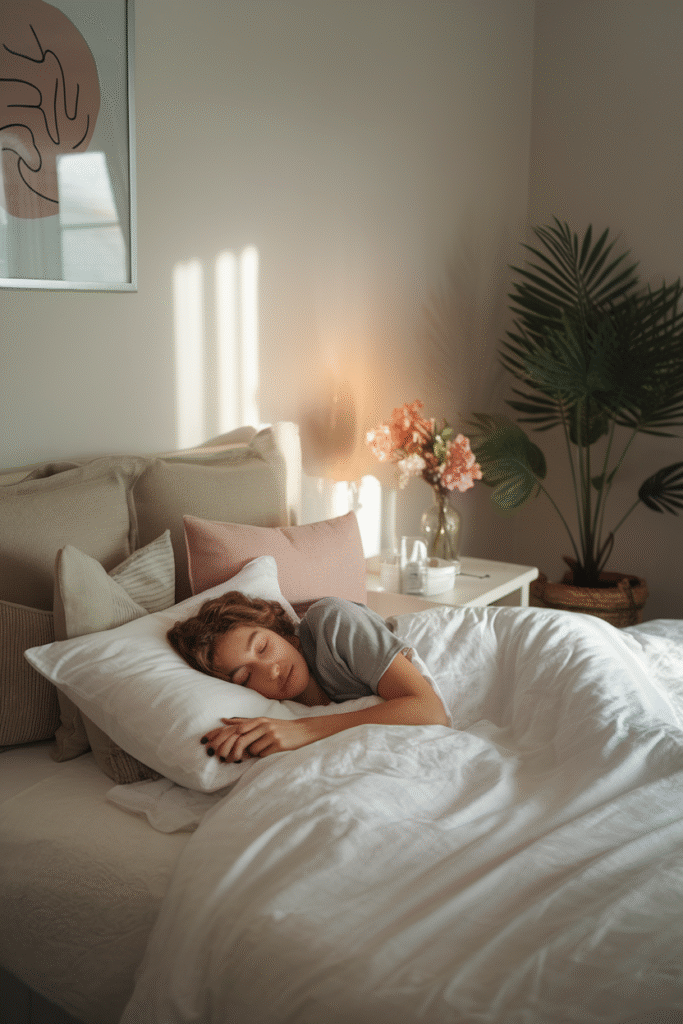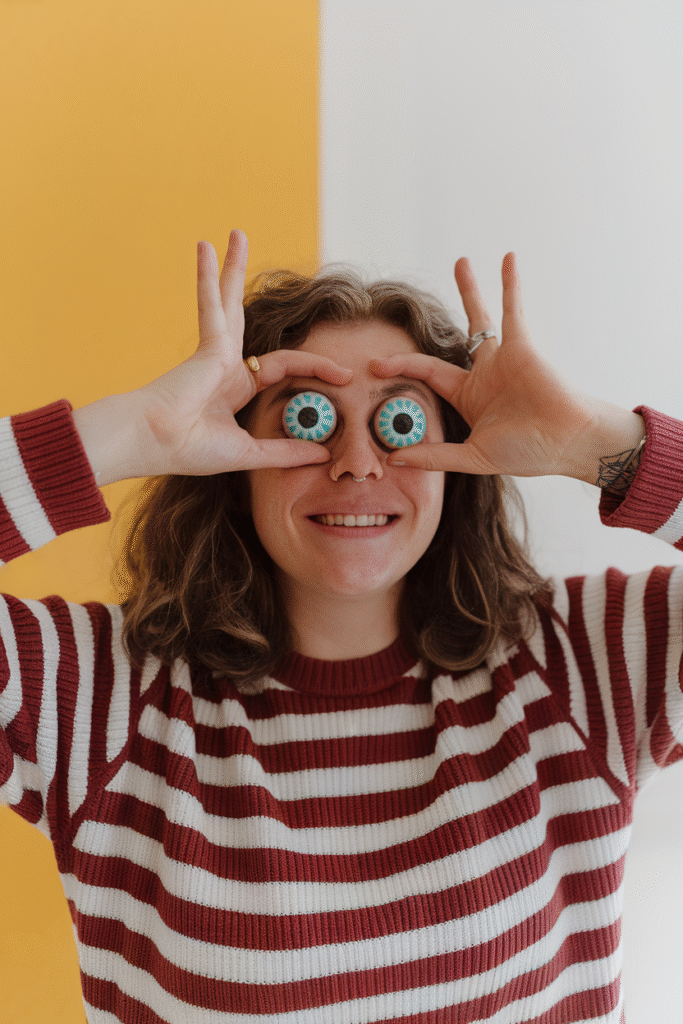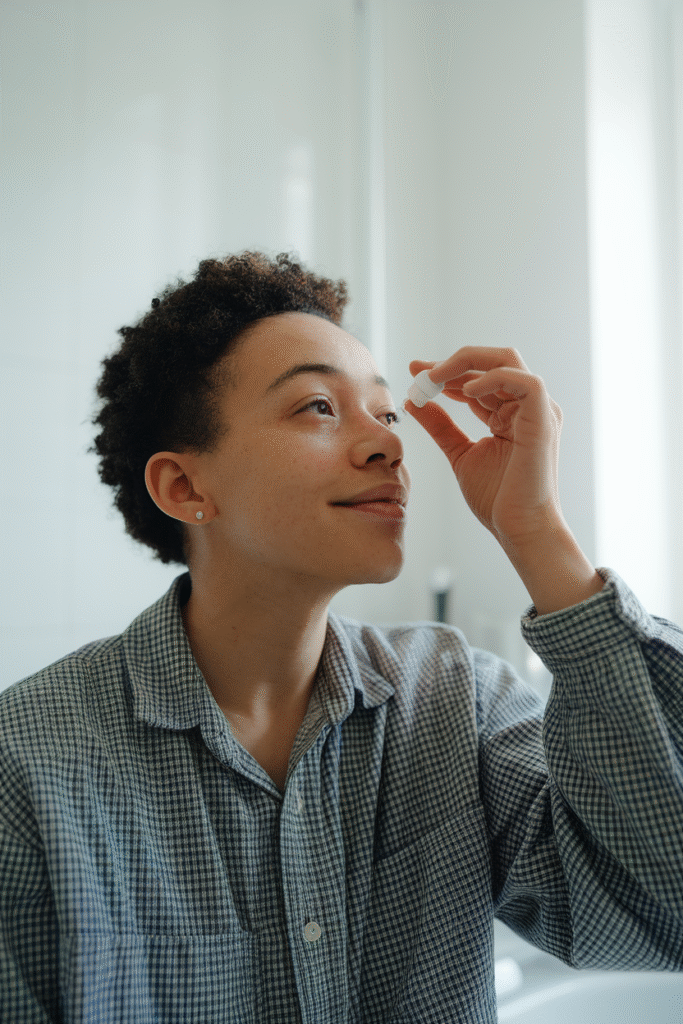Ever caught yourself squinting at your phone or laptop and thought, “Ugh, why can’t my eyes just cooperate?” Yeah, me too. Eye strain, blurry vision, and those random headaches—yep, I’ve been there. But here’s the thing: a few simple tweaks in your daily routine can actually make a noticeable difference. No, seriously! You don’t have to sit in a dark room eating carrots (though they do help 😏).
I’ve tried a bunch of stuff over the years—some worked, some didn’t. So, I’ve rounded up 21 practical eye health tips that actually improve your vision. Stick with me, and by the end, your eyes might just thank you.
1. Schedule Regular Eye Exams
Why it matters: Even if your vision seems fine, problems can sneak up. Early detection is everything.
Pro tip:
Adults: Every 1–2 years.
Kids: Every year.
I once ignored a minor blurriness for months—turns out I needed new lenses. Lesson learned.
2. Follow the 20-20-20 Rule
Staring at screens all day? Don’t worry, we all do. The 20-20-20 rule is simple: every 20 minutes, look at something 20 feet away for 20 seconds.
Why it helps: Reduces digital eye strain and relaxes eye muscles.
3. Blink More Often
Crazy how something so simple gets overlooked. Staring at screens makes you blink less, which dries out your eyes.
Quick fix: Set a reminder or sticky note: “Blink, dummy.” Moist eyes = happier eyes.
4. Wear Sunglasses Outside
UV rays are sneakily harmful. Long-term exposure can cause cataracts and macular degeneration.
Tip: Look for 100% UV protection—cheap sunglasses don’t cut it.
5. Eat Vision-Boosting Foods
Yes, carrots are great, but don’t stop t
Leafy greens: Spinach, kale
Colorful veggies: Red peppers, sweet potatoes
Fatty fish: Salmon, mackerel
Why: These foods provide vitamins A, C, E, and omega-3s, which support eye health.
6. Stay Hydrated
Your eyes need water too! Dry eyes make everything blurry and uncomfortable.
Tip: Aim for 8–10 glasses of water a day. Your eyes (and skin) will thank you.
7. Limit Screen Time (When Possible)
I know, I know—this one is tough. But giving your eyes breaks from phones, laptops, and TVs really helps.
Alternative: If you can’t reduce screen time, increase screen distance and adjust brightness.
8. Use Proper Lighting
Reading in the dark? Stop. Poor lighting strains your eyes, causing headaches and fatigue.
Pro tip: Use soft, indirect light. Your eyes will relax, and reading will actually be enjoyable.
9. Wear Blue-Light Glasses
Blue-light glasses aren’t just a gimmick. They can reduce digital eye strain, especially if you spend hours in front of screens.
FYI: I personally noticed fewer headaches after a week of wearing them while working.
10. Maintain a Healthy Weight
Sounds weird, but diabetes and high blood pressure can seriously damage your eyes. Keeping your weight in check helps prevent conditions like diabetic retinopathy.
11. Don’t Smoke
Smoking is a major risk factor for cataracts and macular degeneration.
Honestly: Quitting is tough, but your eyes (and lungs) will thank you big time.
12. Get Enough Sleep
Ever noticed your eyes feel heavy or blurry after a late night? Sleep is when your eyes repair themselves.
Tip: 7–9 hours per night is optimal for vision health.
13. Practice Eye Exercises
Eye yoga? Yes, it’s a thing. Try simple exercises like:
Rolling your eyes slowly in circles
Focusing on a near object, then a far object
Palming (covering eyes with your hands to relax them)
Why it works: Reduces fatigue and strengthens eye muscles.
14. Keep Your Hands Clean
Touching your eyes with dirty hands can introduce infections. Conjunctivitis? No thanks.
Tip: Wash hands before rubbing or applying drops.
15. Use Artificial Tears
Dry eyes are annoying. Over-the-counter artificial tears keep eyes moist and comfortable.
Pro tip: Avoid redness-reducing drops—they can make dryness worse over time.
16. Limit Alcohol Intake
Excess alcohol can dehydrate your body and eyes, leading to blurred vision. Moderation is key.
17. Control Blood Sugar
High blood sugar damages tiny blood vessels in your eyes, causing diabetic retinopathy.
Tip: Monitor your sugar intake and get regular checkups.
18. Protect Your Eyes from Injuries
Sports, DIY projects, or cooking accidents can happen in a blink.
Pro tip: Always wear protective goggles when needed. Safety first!
19. Consider Eye Supplements
Supplements like SightCare can support eye health with vitamins, minerals, and antioxidants.
My experience: I started using a trusted eye supplement, and my eyes felt less strained after long screen sessions.
20. Reduce Stress
Stress messes with your whole body—including your eyes. Yoga, meditation, or even just a walk outside can help.
Why: Stress can worsen eye strain and lead to headaches.
21. Track Your Eye Health
Keep a journal or app to track your vision changes, eye fatigue, and diet habits.
Pro tip: Regular tracking helps spot problems early and lets you see which tips actually work for you.
Final Thoughts
Eye health isn’t just about avoiding blurry vision—it’s about keeping your eyes comfortable, sharp, and ready for life’s adventures. From proper nutrition and hydration to smart screen habits and supplements, small daily tweaks really add up.
So, start with one or two tips today (I’d say 20-20-20 rule + leafy greens) and gradually add more. Trust me, your eyes will thank you, and squinting at your phone will become a thing of the past 😎.
